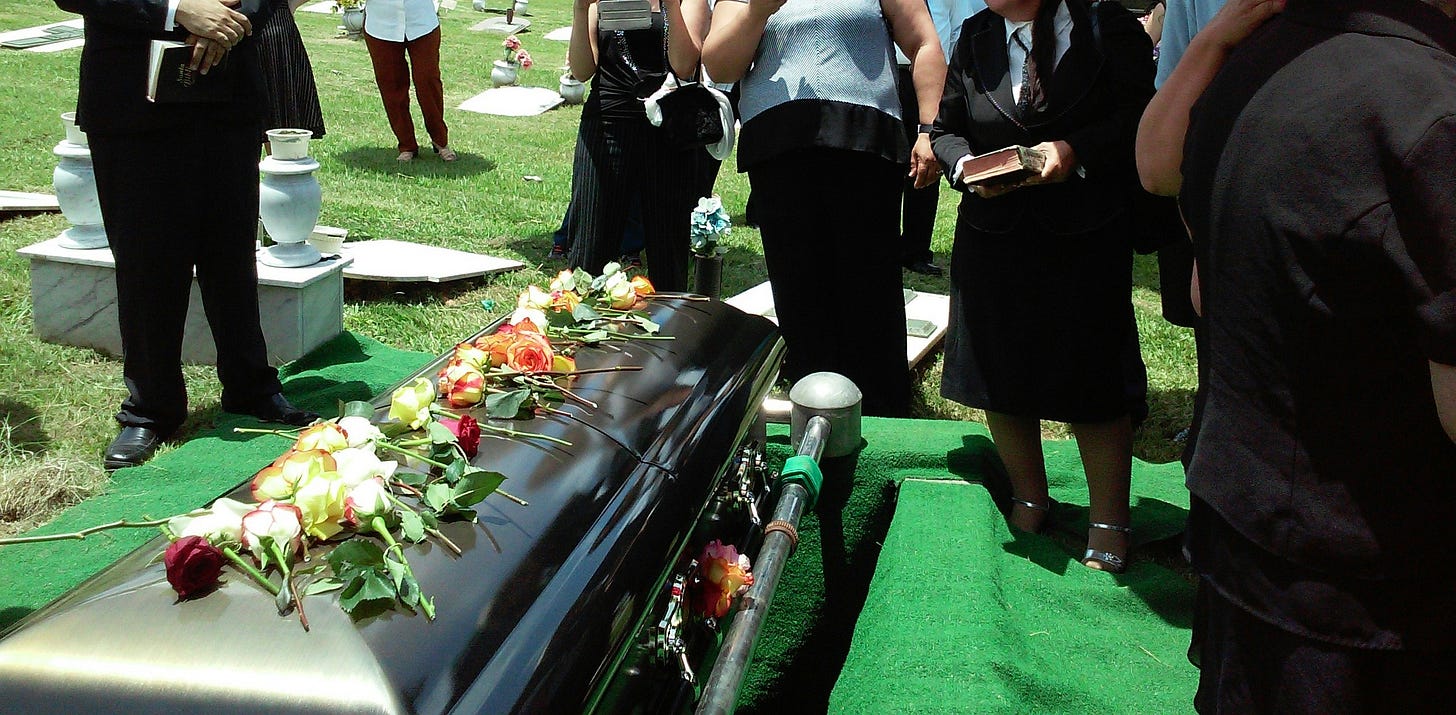Grief as a Gospel Opportunity: Discipling Through Loss
My grandmother recently passed away and I was able to spend time with family members talking about what really matters.
You probably don’t think of the time when a person experiences the death of a loved one as a discipleship opportunity. Why? Well the people who have just lost a loved one are experiencing many different emotions that can seem to change within the span of an hour.

People will likely experience grief, shock/disbelief and sadness. They may experience anger or guilt. In other cases, people will experience profound loneliness or even fear and anxiety. It can be difficult to match the intensity of emotion that people are feeling when a loved one dies. So, sometimes we shirk our friendship duties (or pastoral duties) and “give them space.”
People also experience time differently in the days and weeks following a loss. Grief can make time feel as if its frozen. Days will blur together and it might be hard for people to track time. I tend to notice this feeling on about day 3. Later on anniversaries and milestones can feel heavy when we realize it is the first one without ________. Especially with the loss of a spouse, people tend to feel a clear divide of time before the person passed and after. So sometimes we feel like we need to give friends and family space to rest, and at times we do…
But here’s what everyone misses: When people experience loss they are often open to having spiritual conversations that can change the direction of their life. When people are experiencing a range of emotions, they often exhibit an interest in spiritual matters, and the afterlife. What a great time to share the gospel with someone! What a great time to suggest making spiritual growth (discipleship) a priority!
Time is different, in a good way. In and around a time of loss, people are often unwilling to continue on in the busy-ness of normal life. They take a break. They reflect. They are willing to spend an hour or two in conversation about spiritual matters at this time because they feel like its a priority now more than at other times.
This matters right now for 2 reasons. First, now is the best time to lead someone through a time of grief into discipleship so that they can bear fruit in life. Second, the global population is projected to start declining by the end of this century.1 That means more people will experience the loss of a loved one than will experience the joy of a birth. We need to shift our mindset toward discipling people through this opportunity to make a difference right now.
You aren’t just there to speak at the funeral… or help at the funeral or whatever… You are there to lead them closer to Jesus.
Immediately, you can go see the person when you hear the news. You might be right, they may be a good enough friend that they’ll understand you are busy. But they will also see the evidence of how much you care for them if you drop everything and go spend time with them.2 You might also call and setup a time to meet.
You aren’t just there to speak at the funeral… or help at the funeral or whatever… You are there to lead them closer to Jesus.
During the first few days, you can help by being present during the planning phases (where appropriate) and in sharing information with others (to remove that burden from the friend). Take the trash out, bring food… serve the friend well. People will listen to what you say if they see how much you care. You don’t have to solve all their problems, but point to Jesus with scripture whenever you have the opportunity.3 Truthfully, you’ll have more opportunity than you know what to do with.
On the funeral day, make things as easy on the family as possible. Ask them what they want to happen, and then make sure it does. The funeral is really for those few people who were extremely close to the deceased person. Share good memories of the person who passed. Encourage others to do the same.
Then, a short time after, follow up. Buy lunch or coffee or whatever - in order to spend time with the person. Listen. Ask if they still want to make whatever life changes they talked about during the initial phase of grief. Ask how you can help them come up with a plan and stick to it. Keep checking in.
I would really love to hear what I left out of this post. How can we lead people toward Jesus in their time of loss? What has worked well for you?



